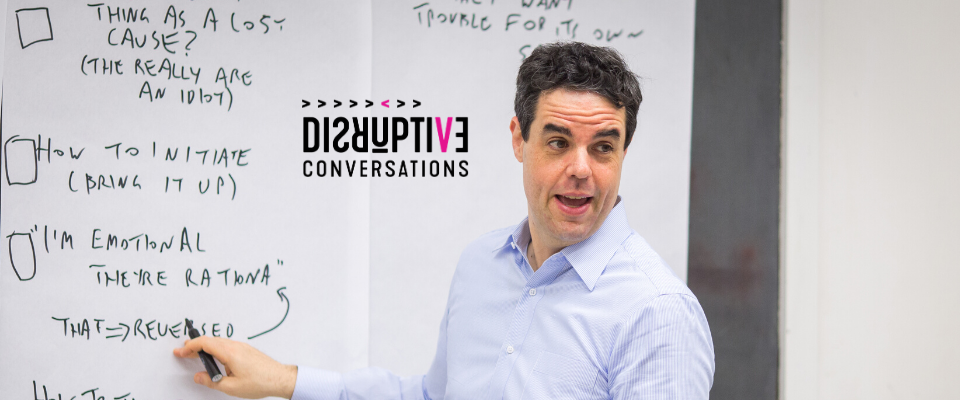In this episode, I talk with Misha Glouberman and I explore the nuance of a conversation. Admittedly, this was not my best interview. There was a moment in the interview where I was so caught up in being understood that Misha and I got in a silly dance where I broke all the rules of successful conversations. The irony of this conversation is that it demonstrates the best and the worst of great conversations.
A few of the key things that stood out for me are:
So often conflict blinds us to how what we are fighting for is actually working against our own goals and objectives.
At the start of the conversation, Misha tells a fascinating story that can be teased apart in many different ways. He tells the story of how a group of neighbours were fighting very hard to close a bar and, in the end, if they got what they wanted, they would have been worse off. In that story, he also highlights that conflict is not necessarily a bad thing. In fact, it is just a part of life and we can use conversation to improve our experience of conversations.
How much do you caught up in your own story?
So many of us hold on to the story we tell ourselves without question our own conclusions to the story. So often, the stories we tell ourselves prevents us from helping the conversation move forward. Can we take a “yes and” frame for the conversation?
Language and framing are important.
In this episode, we explore different framings of the story he introduces in the beginning. Sometimes when we get into a fight with someone, the truth is, even if we win, we lose. Can we be intentional about how we contribute unproductive conversations?
It is important to acknowledge that a successful conversation is not free of bad or negative feelings.
We spend some time talking about the importance of seeing what are trying to say. In many conversations, we do not actually say what we wanted to say. Some of this is that we try to smooth things over and we put aside the things that are important to us. What is the easy thing for us to say?
How can I get better at having my mind changed?
For most of us, our goal is to change the mind of another person. What if the goal was to get better at changing our own mind? I find this to be a profound provocation and to sit deeply with this question takes a lot of work. Even deeper to try to turn this into a conversational practice is even more difficult but a worthy pursuit.
Very often it is against your interest to make things antagonistic.
For most of us, we get so caught up in what we want. So, we focus on ensuring that the person hears the point we think they are missing. We tell them that thing we have always wanted to tell them. In the end, our approach to the conversation is self-serving and not generative. What if instead you tried to understand what they wanted and worked to ensure what you both get more of what you want. Part of the goal of this podcast is to find ways to improve conversations.
Conversations sit within a social context.
One of the biggest insights from this conversation came for me when Misha reminded me that many of our beliefs are largely influenced by our social context. It is difficult to hold a belief that contradicts the dominant beliefs in that culture. The views we hold can alienate or provide us with belonging. The social context plays into the beliefs we hold.
Change others mind by changing what you do.
A good reminder for me was that, if the goal is to change the mind of another person, then we are both caught in a gridlock. Instead of trying to change their mind, we can manage what we are in control of. Our own behaviour.
How do you get people to do x, do x?
If I want to get people to be more collaborative, I need to be more collaborative. We get people to change by changing the way we do things.
Conclusion
This episode was a rich and deep dive into the nuance of conversation and it was wonderful to be in conversation with Misha.
Learn more about Misha Glouberman by visiting his website: http://www.mishaglouberman.com/
